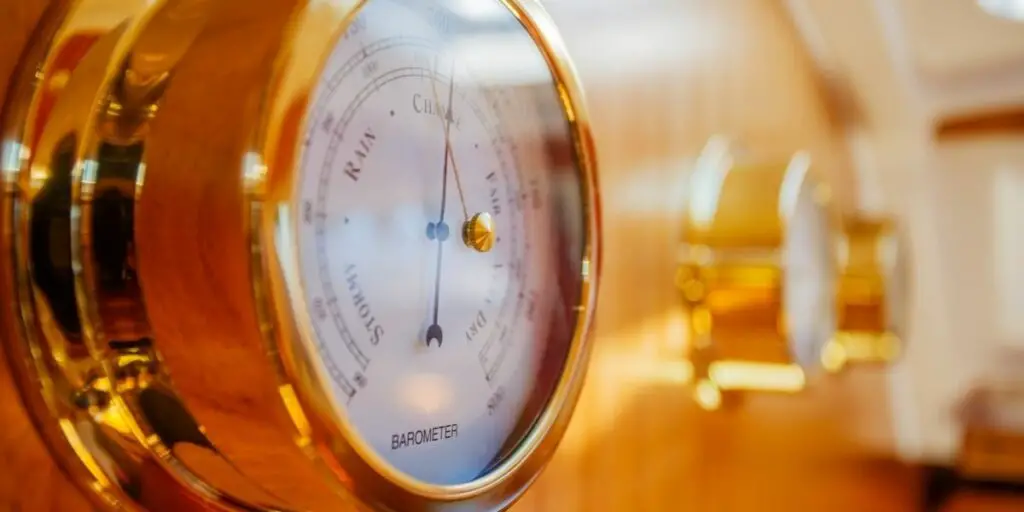
If you are someone who really enjoys their time out on the Lakes fishing, then you will want to make sure that you can spend as much time as possible out there working for your next catch.
One of the things you may be wondering, in order to maximize the number of opportunities you have to fish, is what effects wind might have upon your Lake Fishing experience?
After all, the air isn’t always calm outside, and if you will want to know if this wind will allow you to make the most out of your time!
Within this article, we will inform you as to how wind can affect Lake Fishing and why exactly this is so that you can be in the know on all the aspects of Lake Fishing.
Table of Contents
Will wind cause fish to inhabit different areas of a Lake?
Winds can in fact cause fish to crop up in areas of a Lake that you might not usually expect and have not accounted for.
Depending on how strong the winds are, you might find that some areas of the Lake result in a low amount of bites, where on a day with calmer winds you might have gotten many.
This is because wind can cause waves upon the lake that wouldn’t be there, or at least not as strongly, on a calmer day.
These waves can then cause currents and increase the turbidity (this essentially means that there are more suspended particles in the water; in this case, nutrients) of the water that will carry nutrients that fish might feed upon to be taken with them, it follows that the fish will then follow these waves so that they might still feed upon these nutrients.
As a result of following the currents to find their food, you may find that the fish are in different locations depending on the strength of the wind and the waves they create.
So fishing in strong winds can sometimes cause the number of bites you get to seem a little random.
If you are getting low bites in an area that is usually populated, try relocating in the direction of the winds to try and catch some of the fish that may be adventuring elsewhere for their food.
Stormy Weather & Barometric Pressure
Another element of the weather that winds will often be brought along with is storms. Accompanying most storms will be a heavy amount of wind and as we have gone through already, this can cause changes to fish behavior in the lake.

What exactly is Barometric (Atmospheric) Pressure?
Storms also bring with them a change in the barometric pressure (also known as atmospheric pressure) of the surrounding area.
This can also cause a change in how the fish will behave within the Lake and so it is worth noting.
Barometric Pressure is essentially, in layman’s terms, how heavy the air is, or more accurately it is the force being applied by the atmosphere of the Earth upon a certain area.
This is a pressure that is felt all over the world upon many surfaces and so it follows that the Lakes of the Earth are also susceptible to this pressure, so too are the fish that live within them.
Here in the US, we would use inches of mercury, or inHg, in order to measure the Barometric pressure and this is because in order to take these measurements we use a Mercury Barometer.
At sea level the reading in inHg would be 29.92 and the higher the barometric pressure, the higher the reading (and vice versa).
Why are fish susceptible to the effects of Barometric Pressure?
The reason that fish are affected by Barometric Pressure is because of the way in which their bodies are made up and the organs which they have developed in order to live underwater successfully – most notably their swim bladders and lateral lines.
Swim Bladder
Not unlike a stomach, the swim bladder is an organ that gives the fish buoyancy by inflating with air.
This organ acts as their own personal barometer and as the pressure of the air changes, so too does the pressure upon the fish bladder.
The larger the swim bladder of a fish, the greater they will feel the effects of barometric pressure.
So fish with larger swim bladders such as Trout and Snappers will feel the effects more than say a Mahi Mahi or a Kingfish would do.
Lateral Line
The lateral line of a fish is something that fish evolved in order to keep them aware of potential predators within the waters.
Allowing them to pick up on even the smallest of vibrations in the water, the lateral line is also rather susceptible in regards to pressure changes as a result.
What does this mean for Lake Fishing?
In terms of the effects the Barometric Pressure will have on your fishing, you will have to be aware of it in order to make sure you are actually able to catch fish.
As a storm is forming, the air pressure will start to lower at a steady pace and this is a great time to be fishing, the drop in pressure will have fish ready to bite and active.

However as the storm comes to a head and starts to fade away, there will be a very sudden rise in pressure that will cause the fish to hide away and so you should avoid fishing during this time as you won’t be getting many bites at all.
After around 3 days of stable pressure, once a storm has finished, you will find that fish have returned and they are biting a whole bunch and so again this is a great time for you to be out fishing on the Lake.
With storms, you should always ere on the side of caution and be safe when trying your luck out on the Lake.
If a storm seems to be a little too rough to handle, pack up and come back once it has calmed to make sure you don’t come to any harm.
Storms and high winds can affect your sensitive fish finding equipment. Like the Deeper Castable fish finder we use.
Final Thoughts
In conclusion, both the winds and the storms that bring them can have an effect on the Lake Fishing experience, whether the turbidity of the waters causes nutrients to lead fish astray or the pressure of the air cause different behavior in the fish.
Hopefully, this article has been helpful in showcasing these effects so that you can better navigate the Lakes whilst fishing and make the most of your time on or next to the waters.